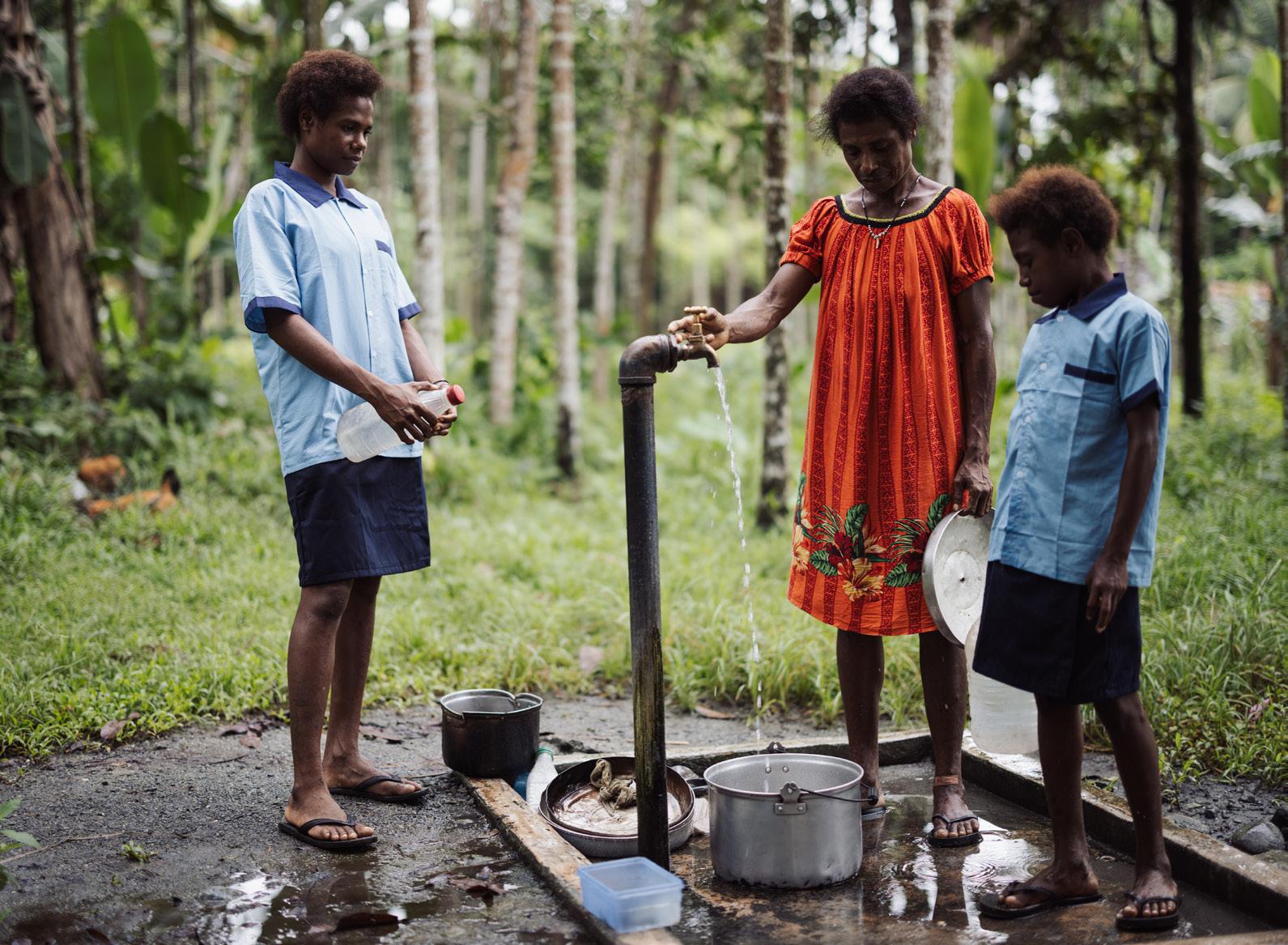Copyright devpolicy

This is the second article in a two-part series reporting on recent research by WaterAid, World Vision PNG and the Development Policy Centre. Read part 1. Across Papua New Guinea, women face distinct challenges in accessing and managing clean water, sanitation and hygiene (WaSH). While some studies have examined these issues (see here and here), the key differences between men’s and women’s attitudes toward water use and governance are still poorly understood. Moreover, except for PNG’s National WaSH Policy, published in 2015, water management policies in PNG rarely address the specific challenges women face. Drawing on recently published research with 147 respondents — including water users in Wewak and South Fly districts, as well as national and subnational policymakers and civil society members — this blog outlines how women’s needs and priorities differ from men’s, and what this means for recent efforts to decentralise water governance through the introduction of District WaSH Committees (DWC), which have been established in selected provinces by the PNG government to enhance WaSH provision at the local level. The research was a collaboration between WaterAid, World Vision PNG and the Australian National Unversity’s Development Policy Centre. While the research report provides greater details and insights, in this blog we highlight three key findings. First, consistent with other studies, we found that women express greater concern about difficulties in accessing water compared to men. When surveyed, 37% of women, compared to 19% of men, identified access to water as their primary challenge in managing water resources. Women are typically responsible for collecting, maintaining, and storing water — tasks that underpin daily life, from gardening and food preparation to caring for sick children and washing clothes. In many communities, this means walking long distances to find clean water. As one focus group participant from Wewak put it: “When water was connected, it made life for us, especially the mothers, easier for cooking, drinking, and to do other things … before the introduction of services, we used to find it extremely difficult to access water for all our basic household needs.” As a result — and this is our second key finding — women want meaningful representation and inclusion in decision-making fora. Despite their central role in water management, women are underrepresented in the governance structures that control water resources. One woman from South Fly explained: “Men and young boys don’t look for water; they just come and use the water, and men make decisions about how to use water resources.” Women were also more likely than men to highlight the exclusion of local community groups from decision-making. Some women saw opportunities for change through recently introduced DWCs, which had been established in South Fly and Wewak, and are being piloted in other areas of the country. Although community groups — such as women’s, disability, church and youth organisations — are represented in theory, respondents suggested that their voices could be strengthened in practice. Men, on the other hand, were more likely to suggest that politicians, district government officials and national government officials should be more engaged with decisions around water, because they considered their influence vital for helping to channel resources into the water sector. Though, encouragingly, many male policymakers and practitioners we interviewed recognised the importance of empowering women around decisions on water given the role they play in managing it. Our third finding suggests that women often envision a different approach to development. To improve water governance, 40% of women wanted stronger community collaboration, compared to 20% of men. A disability advocate put it simply, “we want to see that people living with disability and women … [are] being empowered.” As a result, many women and some men emphasised that, while progress had been made, more work was needed to build community ownership of WaSH initiatives. Respondents suggested that policymakers should respect and incorporate traditional knowledge and communal ownership practices when designing programs. In short, women (and some men) called for greater cooperation at the grassroots level — not just more funding or political buy-in at the top. As PNG expands its network of DWCs, recognising women’s and marginalised groups’ contributions is vital. When women gain access to better WaSH, economic and health benefits often follow. Yet ensuring their concerns reach decision-makers remains a challenge — one that pushes against entrenched social norms. While there is a long way to go, there are some promising examples of inclusive governance. In some districts, DWC structures have given women a genuine voice, and in several cases, strong female leadership has helped shift men’s attitudes toward inclusion. In sum, as PNG moves to decentralise decision making around water management, these findings suggest that sustained investment promoting women’s representation in decision making fora is essential to meet PNG’s urgent WaSH needs. Read the full report, Improving water governance in PNG.



